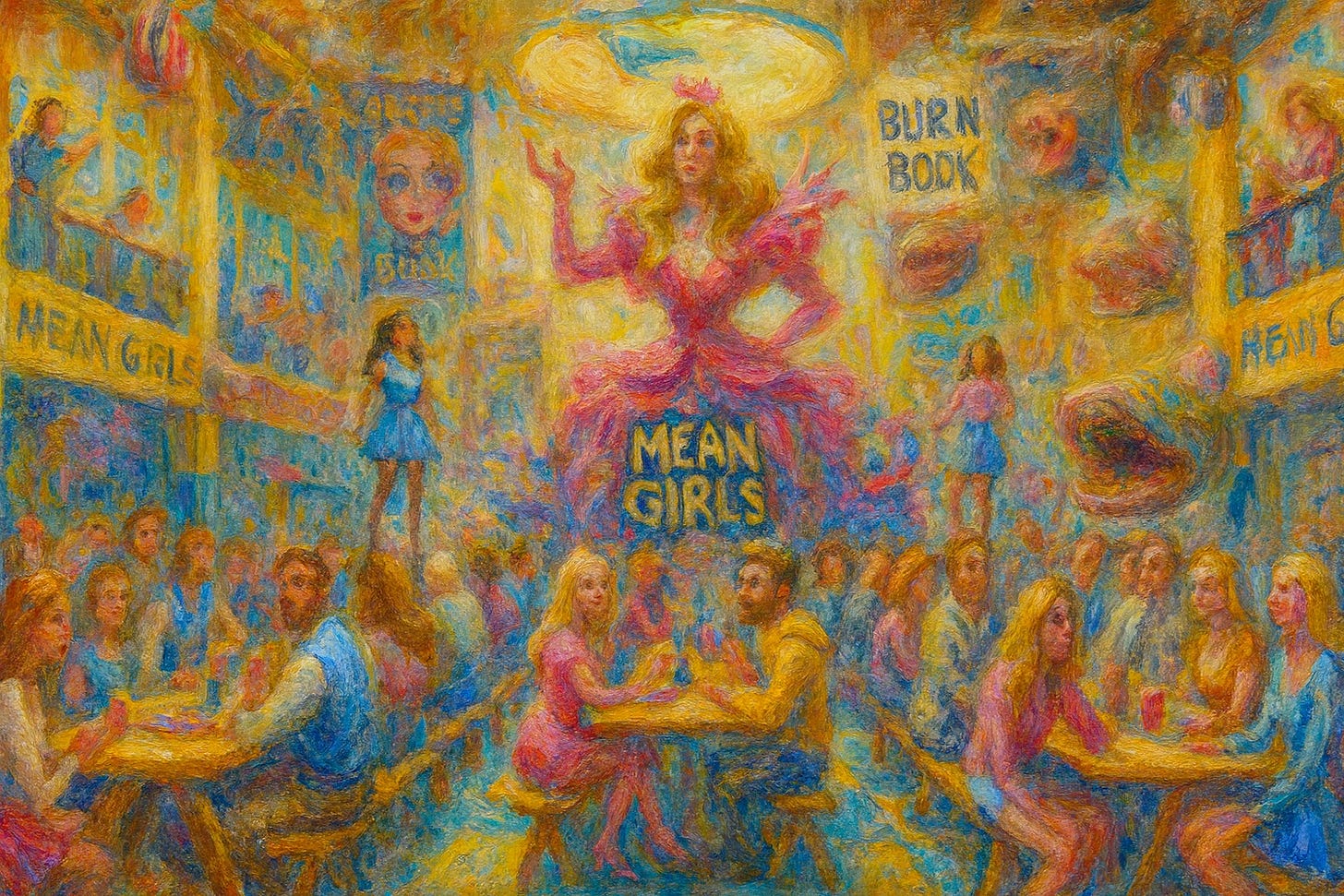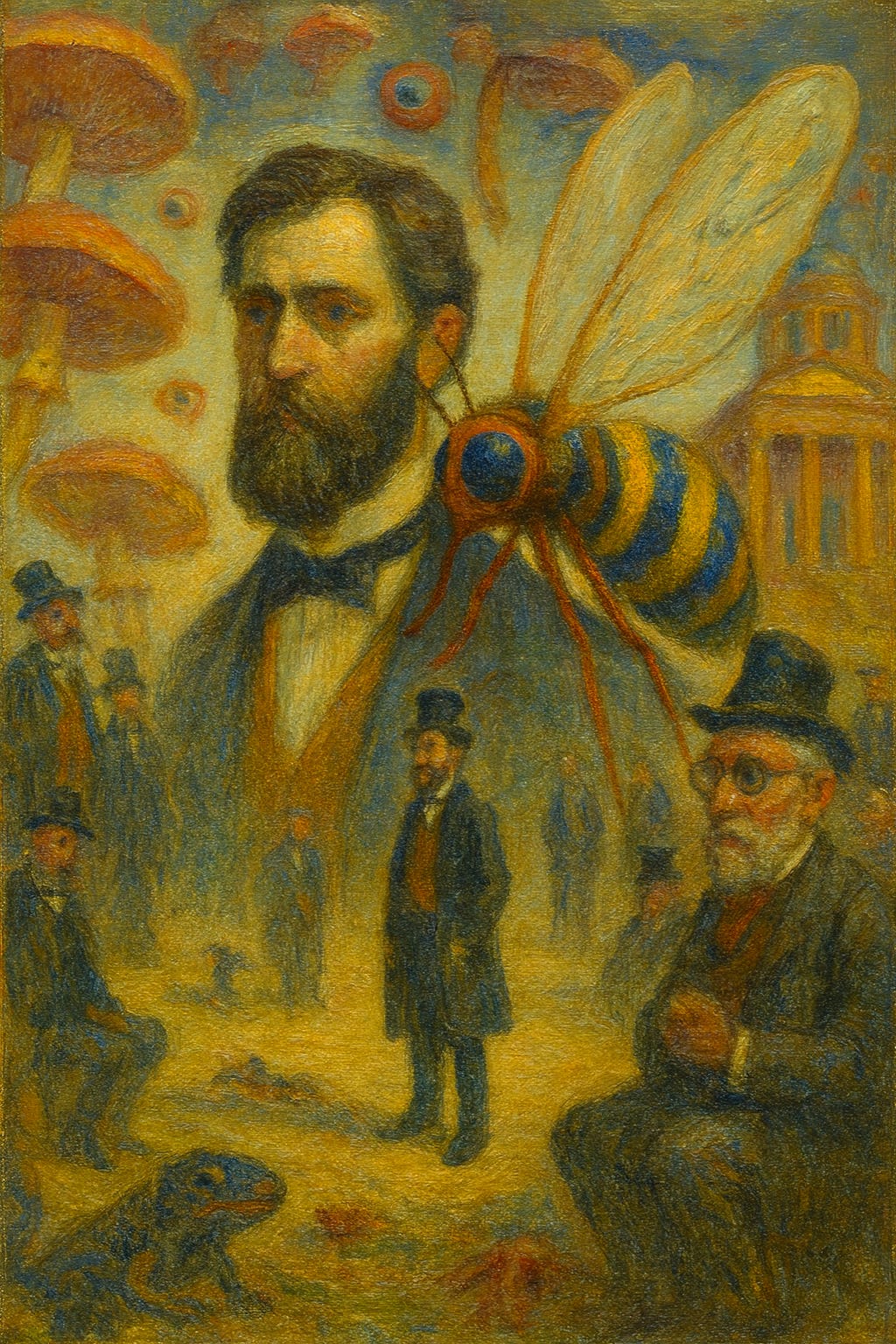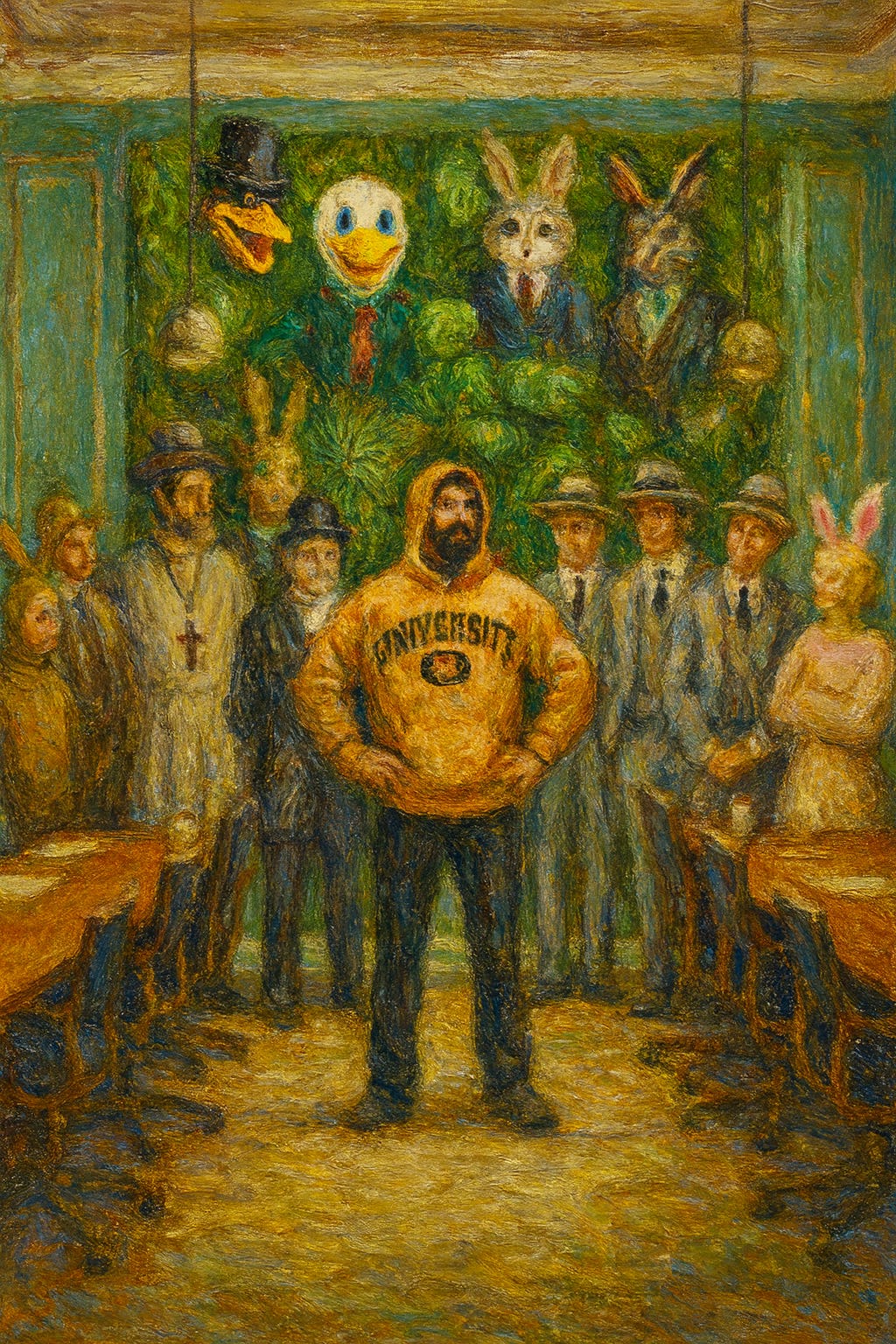I am being thrown in the slowly grinding gears of cancel culture" piece. Part II.
I have changed metaphors from a guillitine to grinding gears. Apologies for confusion.
If you believe in free speech, here’s the bad news: it isn’t actually free. It costs $5 a month. That’s less than the latte you complain about, less than the Netflix shows you’ll never watch, and far cheaper than your last regrettable bar tab.
For that, you get three essays a week, open comments, and the satisfaction of knowing you’re funding uncensored writing in a world addicted to censorship. Everyone says, “It’s just a cup of coffee.” Fine. But here’s the pitch: give me your coffee money and I’ll hand you something stronger—essays with bite, arguments with teeth, and the freedom to say what others won’t.
Subscribe today. Because silence is free—and it’s worth exactly what you paid for it.
The button below takes you to the original story.
This is the second part of my essay on my Kafkesque voyage through cancel culture. The suspension I mentioned in the first cancel culture piece has led to two difficult weeks. Written in Jan. 2025, revised in October 2025.
I have no experience in legal jousts, and if I did, I’d likely have been a poor lawyer—too easily distracted by justice. Yet here I am, dragged into a bureaucratic carnival of manners and malice, where every “please” and “thank you” arrives embossed on letterhead and every smile hides a knife. It feels less like academia and more like being trapped on the set of Mean Girls, except everyone’s middle-aged, less attractive, and armed with a Human Rights Policy.
Whether I ever return to the classroom I loved is immaterial. The damage is done. Trust, that fragile currency of human exchange, has been spent to the last dime. Respect for the institution that betrayed it won’t be replenished in this lifetime.
My supposed crime? Calling Hamas what any moral adult should—Nazis with smartphones. That, apparently, was enough to awaken an army of TikTok theologians and YouTube diplomats, each convinced that they were the first to discover the concept of “context.” Their mothers, one assumes, are still putting away their underwear between bouts of moral grandstanding, congratulating them for choosing social justice over gaming. Progress of a sort, I suppose.
My accuser—a man of infinite grievance and limited imagination—has declared that my words violated his “fundamental human rights.” It’s unclear which ones: the right never to be contradicted, perhaps, or the right to outsource thinking to hashtags. He accused me of violence (though I never mentioned violence), racism (though I never mentioned race), and Islamophobia (though I never mentioned Islam). The elasticity of these terms now rivals the human imagination itself.
Do these people sleep well, I wonder? Do they ever stop to think that their little moral spasms might have consequences—that their exaggerations might poison lives and darken families? Does it warm their hearts to imagine my daughter struggling to pay tuition because they destroyed her father’s livelihood? Is that a victory for progress, or simply the oldest vice dressed in the newest virtue?
But why confront an opponent when you can denounce him anonymously from your phone? Why meet a human being when you can attack a hologram of your own invention? There are no emojis in real conversation—and that, apparently, is the problem.
The deeper malady here is civilizational: we have built a culture on feelings and then declared feelings to be facts. Truth no longer defends; sincerity no longer redeems. If one feels injured, then injury exists. The modern creed is simple: I hurt, therefore you are guilty.
Meanwhile, hypocrisy never sleeps. At my university, a professor named Wael Ramadan—a man celebrated by management, showered with fellowships, and decorated with moral vanity—has a public record of antisemitic rot that would make a 1930s pamphleteer blush. His social media is a sewer of Holocaust analogies and cheap jokes about Jews being too stingy to pay ransom for hostages they allegedly murdered themselves. He even posted a “comedian” describing Jews as people who “skin others alive and wear their flesh”—which, I grant you, does take the edge off a faculty meeting.
But he’s still employed, still lionised, and still free to moralise. Apparently, hatred is forgivable if expressed in the right political direction. I, on the other hand, was the heretic who called terrorists what they are. He’s “nuanced”; I’m “dangerous.”
The moral arithmetic is clear: bigotry plus academic status equals “complex discourse.” Criticism of bigotry minus fashionable identity equals “hate speech.”
And the administration laps it up. They’ve built a process so grotesque it could be Kafka’s group project with Orwell. I was suspended without charges, exiled from campus, and gagged by a lawyered-up edict forbidding contact with anyone who might speak on my behalf. Meanwhile, the gossip mill was given free rein to paint me as everything short of Jack the Ripper. Employees claimed to have “witnessed” me assaulting students in classes I never taught; others swore I’d driven across town to terrorise a family, though I was, in reality, at home arguing with my doctor about renewing my Lorazepam prescription.
If this is justice, then lobotomy is therapy.
The real punchline came later, when one senior administrator - a Melanie Spence Ariemma, why after leading a defamation campaign to poison the workplace against me, should she be sheltered!—who had apparently declared “Trust me, Paul Finlayson will be terminated” before the so-called investigation even began—had the gall to remind me that my benefits were still active.
How very humane. First, they beat you senseless, then they send flowers to the hospital.
But I am fighting back. I am not finished. Even if the odds are absurd, silence is complicity—and I have been silent long enough. I still want to teach again. I miss my students, who were the only people in this entire debacle to act like adults.
I am thankful that my late father never saw this humiliation—that the man who taught me decency was spared the sight of his son being publicly flayed for exercising it.
His photo still sits above my bar, beside Malibu, my small and infinitely forgiving terrier, who turns two this month. Between the two of them, I am reminded what actual humanity looks like: loyalty, humour, and the quiet courage to stand by what’s right even when the world goes mad.
I miss my father terribly, every day; it never goes away. The second anniversary is in a few days.
And so here I am, a heretic in an age that mistakes hysteria for justice, still holding out for the faint hope that reason might outlast the mob. My ordeal is not unique—it’s simply the local manifestation of a global plague: the elevation of grievance to gospel, the conversion of envy into ethics, and the worship of safety over truth.
We are breeding a generation allergic to disagreement and addicted to outrage, whose courage begins and ends at the keyboard. I will not join them.
If defending Israel, decency, or basic moral proportion now counts as heresy, then I’ll wear the scarlet letter gladly. Let them keep their committees and their slogans.
I’ll keep my conscience, my students’ respect, and my hard-won right to speak as a free man in a culture that has forgotten what that means.
And if free speech dies, as the human rights devils and hubristic lunatics in Parliament plan, then lock me up, and I will shout into the corridors of my confinement.










Paul Finlayson writes with wit and insight: “I just love the tactics of HR (that's human rights or human resources - they share the acronym) that create a process to abuse you; they banish you from the community you love, they allow students (and staff and faculty) to circulate wild rumours.” They also fabricate or distort allegations and deprive one of natural justice, such as the right to call witnesses or test their witnesses.
The more I read about your Kafkaesque experience in Academia,the more it sounds like exactly the kind of case that employment lawyer Howard Levitt, writing in the Financial Post, said he would take pro bono. He was talking more about acting for any employer who wanted to fire a Hamasshole, but your case is the exact mirror image, wrongful dismissal BY Hamassholes. I’m sure he might be interested in your case. Hell, ABC had to pay Trump $14 million to settle his defamation suit. Your case should be a layup in comparison.
I was once involved in a lawsuit in Alberta way back in the early 1980s (long story, back when I was in the oil bidness and my friends called me Dry Hole Harry) and I found the best strategy was to show up for the discovery accompanied by the meanest, toughest, scariest, most rabid mad dog SOB lawyer in the entire oilpatch. Before I went out there, I called a friend who was a lawyer in Calgary and asked him who he’d least like to have to face in court. He gave me a couple names, and some oilpatch pals gave a few more. When I told my lawyer friend later who I’d hired, he said, “Him? You hired that prick?” And I thought, perfect! So we get in a room with a court stenographer, and my lawyer leans back in his chair and puts his cowboy boots up on the table, and when the rookie lawyer from some white shoe law firm walks in, representing the oil company that was suing me, and sees my guy the pit bull, I’m pretty sure he peed himself. Then my guy lights a cigar(!) and the other lawyer says, “Do you mind not smoking?” And my guy responds, “Yes, I do,” and kept on puffing away. The whole thing took less than an hour, and I never even had to answer a single question, while my guy mercilessly grilled the CEO of the company suing me. They ended up dropping the lawsuit in exchange for us agreeing to not countersue them (which I hadn’t even thought a possibility). I’ve never seen anything like it, before or since.